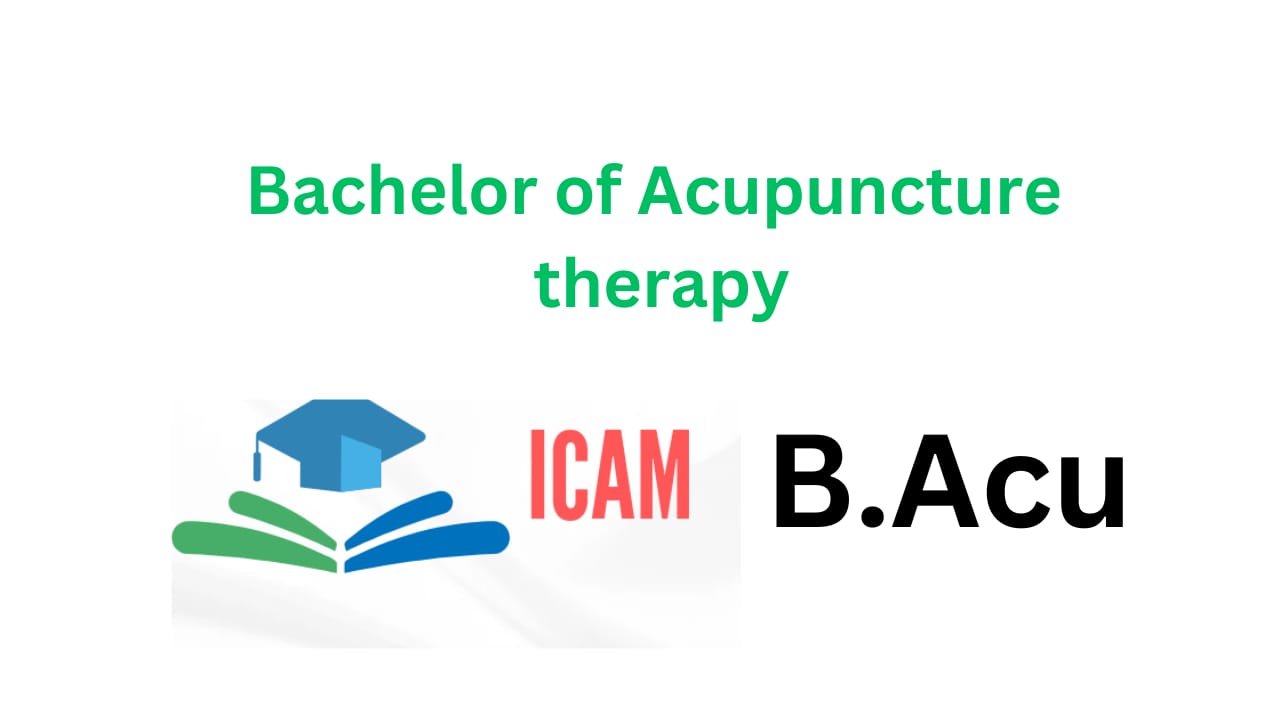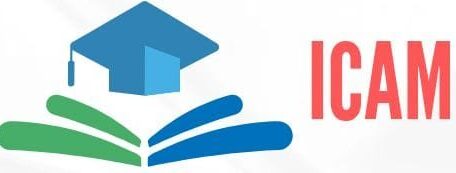Bachelor of Acupuncture Therapy (B.Acu)
Course Content and Syllabus: Bachelor of Acupuncture Therapy (B.Acu)
The Bachelor of Acupuncture Therapy (B.Acu) program offered by the Indian Council of Alternative Medicine provides students with a comprehensive understanding of acupuncture and its therapeutic applications. The course is designed to equip students with the knowledge and skills necessary to become proficient acupuncturists and healthcare practitioners. Below is an outline of the course content and syllabus:

- Introduction to Acupuncture
- History and philosophy of acupuncture
- The concept of Qi and meridians
- Yin and Yang theory
- Five Elements theory
- Fundamentals of Traditional Chinese Medicine (TCM)
- TCM diagnosis and assessment techniques
- Principles of TCM treatment
- Acupuncture point selection and needling techniques
- Herbal medicine and dietary therapy in TCM
- Anatomy and Physiology
- Human anatomy and physiology relevant to acupuncture
- Nervous system and acupuncture
- Musculoskeletal system and acupuncture
- Cardiovascular and respiratory systems and acupuncture
- Acupuncture Techniques and Therapies
- Basic acupuncture techniques
- Advanced needling techniques
- Electro-acupuncture and laser acupuncture
- Auricular acupuncture and scalp acupuncture
- Cupping therapy and moxibustion
- Acupuncture for Specific Conditions
- Pain management and acupuncture
- Acupuncture for stress, anxiety, and depression
- Acupuncture for digestive disorders
- Acupuncture for respiratory conditions
- Acupuncture for reproductive health and fertility
- Ethics, Safety, and Professional Practice
- Legal and ethical aspects of acupuncture practice
- Infection control and safety precautions
- Communication skills and patient care
- Business management for acupuncturists
- Clinical Training and Internship
- Hands-on clinical training under the supervision of experienced acupuncturists
- Observation and participation in real patient treatments
- Case studies and clinical assessments
- Development of diagnostic and treatment skills
- Research Methodology in Acupuncture
- Principles of research in acupuncture
- Research design and methodology
- Data collection and analysis
- Critical appraisal of research studies
- Traditional Systems of Medicine
- Introduction to Ayurveda, Homeopathy, and Naturopathy
- Integration of traditional systems with acupuncture therapy
- Comparative study of different therapeutic approaches
- Professional Development and Continuing Education
- Professional organizations and networking opportunities
- Continuing education and specialization options
- Continuing professional development (CPD) requirements
Top Recruiting Areas:
- Acupuncture Clinics and Wellness Centers
- Integrative Medical Centers and Hospitals
- Rehabilitation Centers
- Spa and Wellness Resorts
- Sports Medicine Clinics
- Ayurvedic and Holistic Health Centers
- Research Institutions
- Corporate Wellness Programs
- Educational Institutions
- Self-Employment (Private Practice)
Job Positions:
- Acupuncturist
- Traditional Chinese Medicine Practitioner
- Wellness Consultant
- Pain Management Specialist
- Integrative Medicine Practitioner
- Research Associate
- Acupuncture Instructor
- Holistic Health Practitioner
- Ayurvedic Practitioner
- Rehabilitation Therapist
Specializations:
- Pain Management
- Stress and Anxiety Management
- Sports Medicine and Performance Enhancement
- Women’s Health and Fertility
- Respiratory and Allergic Conditions
- Dermatology and Cosmetic Acupuncture
- Pediatric Acupuncture
- Geriatric Acupuncture
- Oncology Support
- Mental Health and Emotional Well-being
